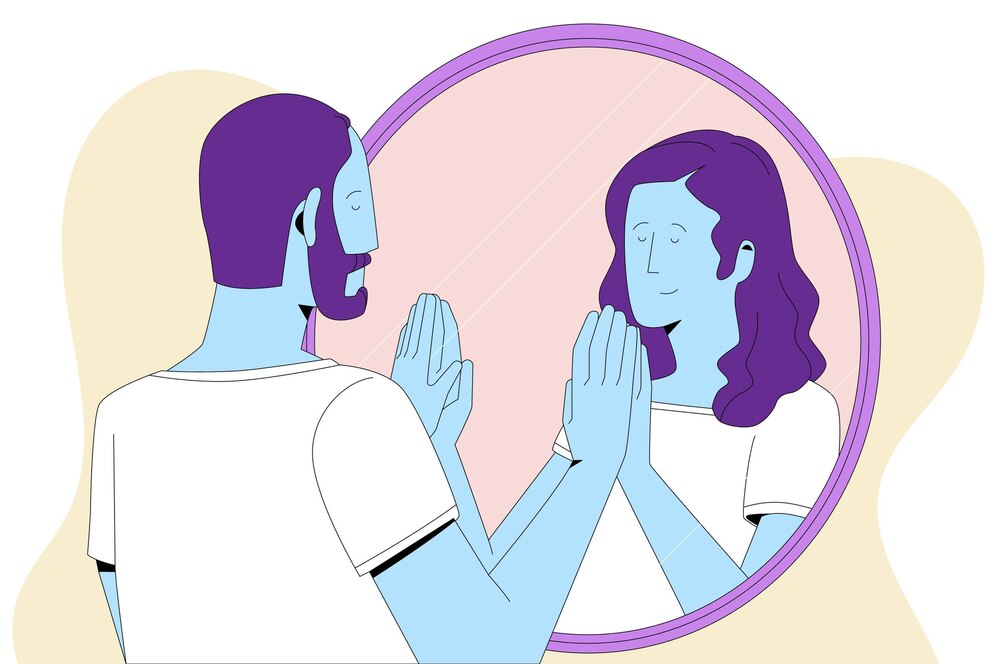At the heart of every human interaction lies a tangle of emotions, perceptions, and personalities. Relationships are shaped by these intricacies, evolving in the dance of shared experiences and individual traits. One such trait that can distinctly mold relationships is “grandiosity“. While it might sound like a grand term from a Victorian novel, its implications in modern relationships are profound. Let’s embark on a journey to unravel the effect of grandiosity on relationships.
What is Grandiosity?
To set our bearings straight, let’s first grasp the essence of grandiosity. It can be seen as an inflated view of one’s abilities, importance, or qualities. People with a penchant for grandiosity might see themselves in an overly favorable light. Their world is often colored by their exaggerated self-perception. But how does this trait seep into the realm of relationships? Read on!
The Enchanting Beginnings
Like the most enthralling of tales, relationships touched by grandiosity often start on an electrifying note. Individuals with this trait come across as confident, often exuding charisma that can be magnetizing. Their grand stories, ambitions, and self-assuredness can make them incredibly attractive. The initial phase feels like a whirlwind, with promises of grand adventures and shared dreams.
The Turning Tides
However, as the initial dazzle begins to fade, the more challenging aspects of grandiosity start to surface. The constant need for validation and admiration can become a taxing demand on partners or friends. Their narratives, once charming, may start to sound more self-centered, overshadowing the needs and feelings of others.
Challenges of Grandiosity On Relationships
In the context of relationships, grandiosity can introduce several complexities:
- Imbalanced Dynamics: Conversations might become one-sided. The person with grandiosity often becomes the focal point, unintentionally minimizing the significance of others around them.
- Empathy Drought: A key challenge lies in their difficulty recognizing or even understanding the emotions and needs of their counterparts. It’s not so much about malice but more about a blind spot in their emotional spectrum.
- Criticism? Not Well Received: Constructive feedback can often be misconstrued as personal attacks. This poses hurdles in communication and growth within the relationship.
- The Everest of Expectations: The expectations set can be mountainous. Their need for consistent admiration can lead to disillusionment and frequent misunderstandings.
Can Relationships with Grandiosity Work?
Given the challenges, it’s natural to wonder if relationships where one partner displays grandiosity can thrive. The answer is complex. While it’s challenging, it’s not impossible. Success hinges on awareness, understanding, and concerted effort from both parties.
- Communication: As with any relationship, open and honest communication is crucial. Addressing concerns without attacking the individual’s character can pave the way for mutual understanding.
- Therapy: Professional help can be invaluable in these scenarios. A therapist can provide tools and techniques to navigate the relationship dynamics more effectively.
- Boundaries: Establishing clear boundaries ensures that both partners feel respected and valued. It can prevent feelings of being overwhelmed or overshadowed.
If you identify with having traits of grandiosity, self-awareness is the first step to harmony. Recognize the impact of your behavior on your loved ones, and be open to feedback. Everyone has the potential for growth, change, and deep, meaningful connections.
Grandiosity, with its shimmer and shadows, adds a unique dimension to relationships. Recognizing its influence, understanding its nuances, and adopting strategies to manage its challenges are crucial. After all, the essence of relationships lies in the balance of self and shared, in understanding and being understood.

FAQs – Frequently Asked Questions
- What is Grandiosity?
Grandiosity refers to an exaggerated sense of one’s importance, achievements, or capabilities. It’s often associated with traits like bragging, a lack of empathy, and a constant need for admiration.
- Why can Grandiosity initially seem attractive in a relationship?
People with grandiose traits often exude confidence, charm, and charisma. They can draw individuals in with captivating stories and ambitious visions, making the early stages of a relationship feel special and intoxicating.
- How does Grandiosity affect the dynamics of a relationship?
Over time, the consistent need for admiration and validation from a grandiose individual can become exhausting. The relationship might suffer from unequal dynamics, a lack of empathy, avoidance of criticism, and unrealistic expectations.
- Is it possible to maintain a healthy relationship with someone displaying Grandiosity?
While challenging, it’s not impossible. The success of such relationships depends on open communication, professional therapy when needed, and establishing clear boundaries.
- How can therapy help in relationships affected by Grandiosity?
A therapist can provide tools and techniques to navigate the relationship dynamics more effectively. They can offer strategies for communication, setting boundaries, and ensuring both partners feel valued.
- Are Grandiosity and Narcissism the same?
While grandiosity is a trait often linked with narcissism, they are not synonymous. Narcissism is a broader personality disorder, whereas grandiosity is a specific characteristic that can be present in various degrees among individuals.
- What are some ways to communicate effectively with someone displaying Grandiose traits?
Addressing concerns without attacking the individual’s character is essential. Using “I” statements, expressing how certain behaviors make you feel, and seeking common ground can pave the way for mutual understanding.
- Is Narcissism a choice?
Narcissism, as understood in the realm of psychology, is not a simple matter of choice. It’s a complex interplay of biological, environmental, and social factors. Narcissistic Personality Disorder (NPD) is a diagnosed mental health condition, and it’s believed that its origins can be traced to early childhood experiences, genetic predisposition, and social environment among other factors. While certain narcissistic behaviors might be learned and can be unlearned, the deep-rooted aspects of the disorder are not something someone consciously chooses. However, with therapy and self-awareness, individuals with narcissistic traits can work towards understanding and managing their behaviors.
- Am I intelligent or delusional?
This question delves deep into self-awareness and self-perception. Intelligence and delusion are two vastly different concepts. Intelligence pertains to one’s ability to acquire and apply knowledge and skills, whereas delusion refers to holding onto a belief even in the face of contradicting evidence. It’s possible for someone to be intelligent and have delusional beliefs. Self-awareness and seeking feedback from trusted individuals can help in discerning between genuine intelligence and potentially delusional self-perceptions. If you find yourself frequently questioning your perceptions or beliefs, it might be beneficial to seek professional guidance or counseling to gain clarity.
The world of relationships is intricate, and grandiosity adds another layer to this complexity. With patience, understanding, and mutual respect, it’s possible to build strong, lasting bonds, even in the face of challenges.
Also read: How to Deal with a Grandiose Narcissist?


